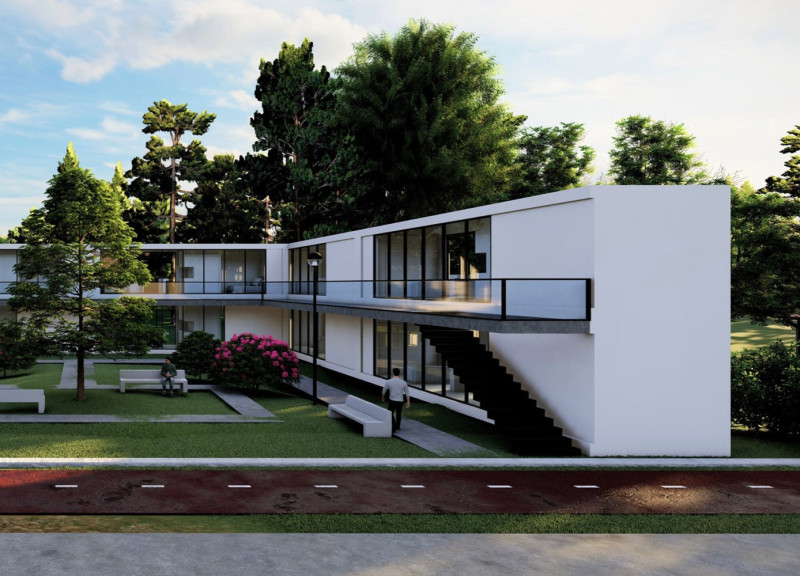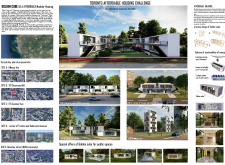5 key facts about this project
The Golden Cube project addresses the urgent need for affordable housing in Toronto, forming part of the Housing TO 2030 Action Plan. It aims to create modular homes that efficiently respond to the city's growing demand for housing, particularly for individuals facing homelessness. The design concept focuses on modularity and prefabrication, allowing for quick construction and seamless integration into city neighborhoods.
Modular Construction
The structure of the Golden Cube is based on modular construction techniques, which involve creating housing units off-site. This method allows for faster assembly at various locations throughout the city. Notable sites include 11 Macey Ave, 321 Dovercourt Rd, 175 Cummer Ave, and the corner of Trenton and Cedarvale Avenues. These locations were chosen for their accessibility to essential services, enhancing the project's ability to engage with the community.
Sustainability Initiatives
Sustainability is an important aspect of the Golden Cube's design. Rainwater harvesting systems are included to help lower water usage. Roof gardens are another feature, adding greenery to the urban environment and providing residents with spaces to enjoy nature. The project also includes solar panels, allowing for energy independence and aligning with modern environmental practices.
Design and Layout
The layout of the Golden Cube is designed to maximize natural light and promote good airflow. This design helps improve the overall living conditions for residents. Windows are thoughtfully placed to encourage interaction among residents, fostering a sense of community. The overall design takes a contemporary approach, emphasizing functionality and comfort, while maintaining a simple aesthetic.
Enhancing Urban Fabric
The Golden Cube serves as a meaningful addition to Toronto's urban landscape. By focusing on modularity, sustainability, and community-friendly design, it contributes positively to the city's affordable housing situation. Its design emphasizes shared spaces and green elements, encouraging a sense of belonging and addressing pressing housing needs effectively.


















































